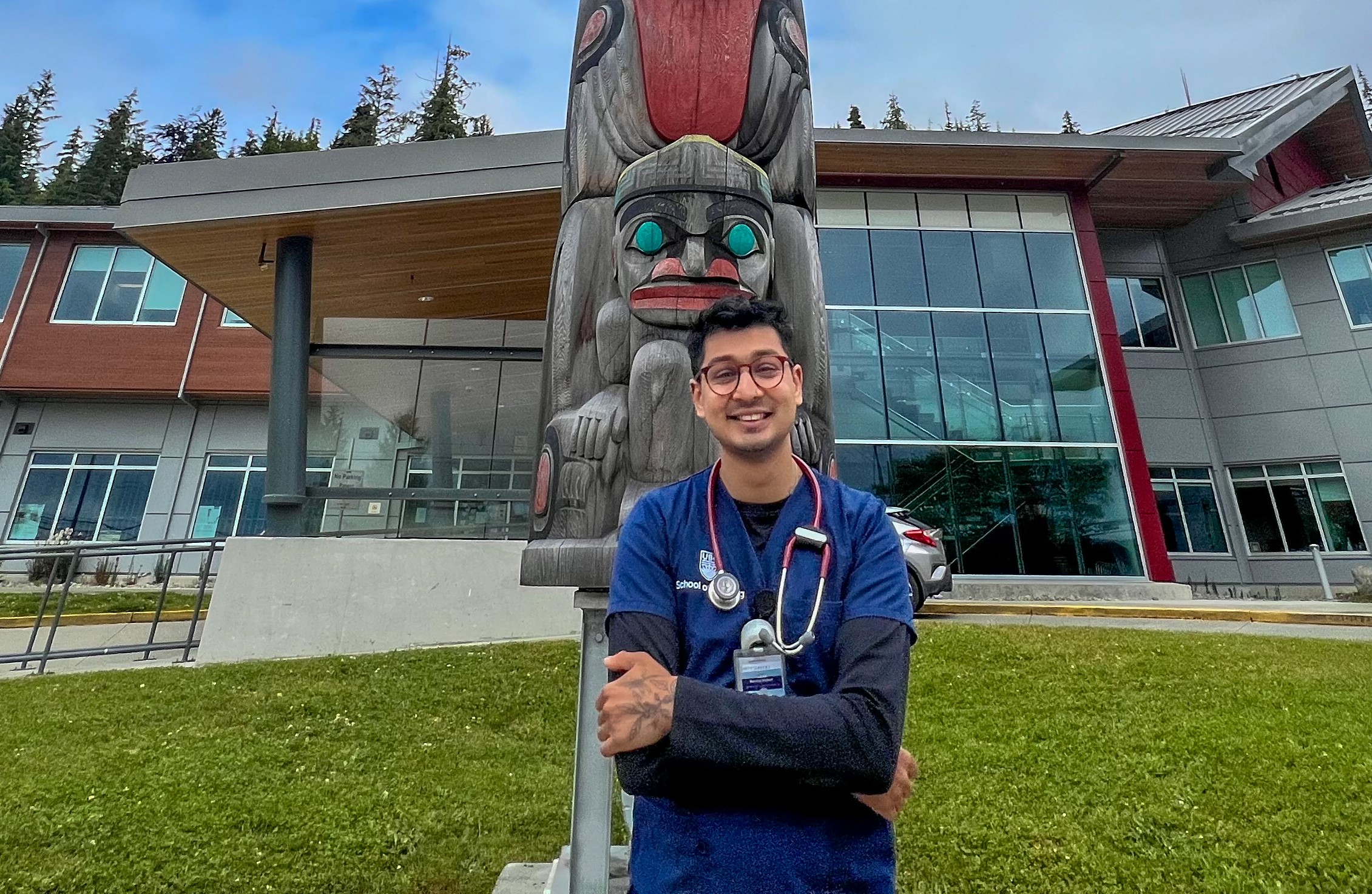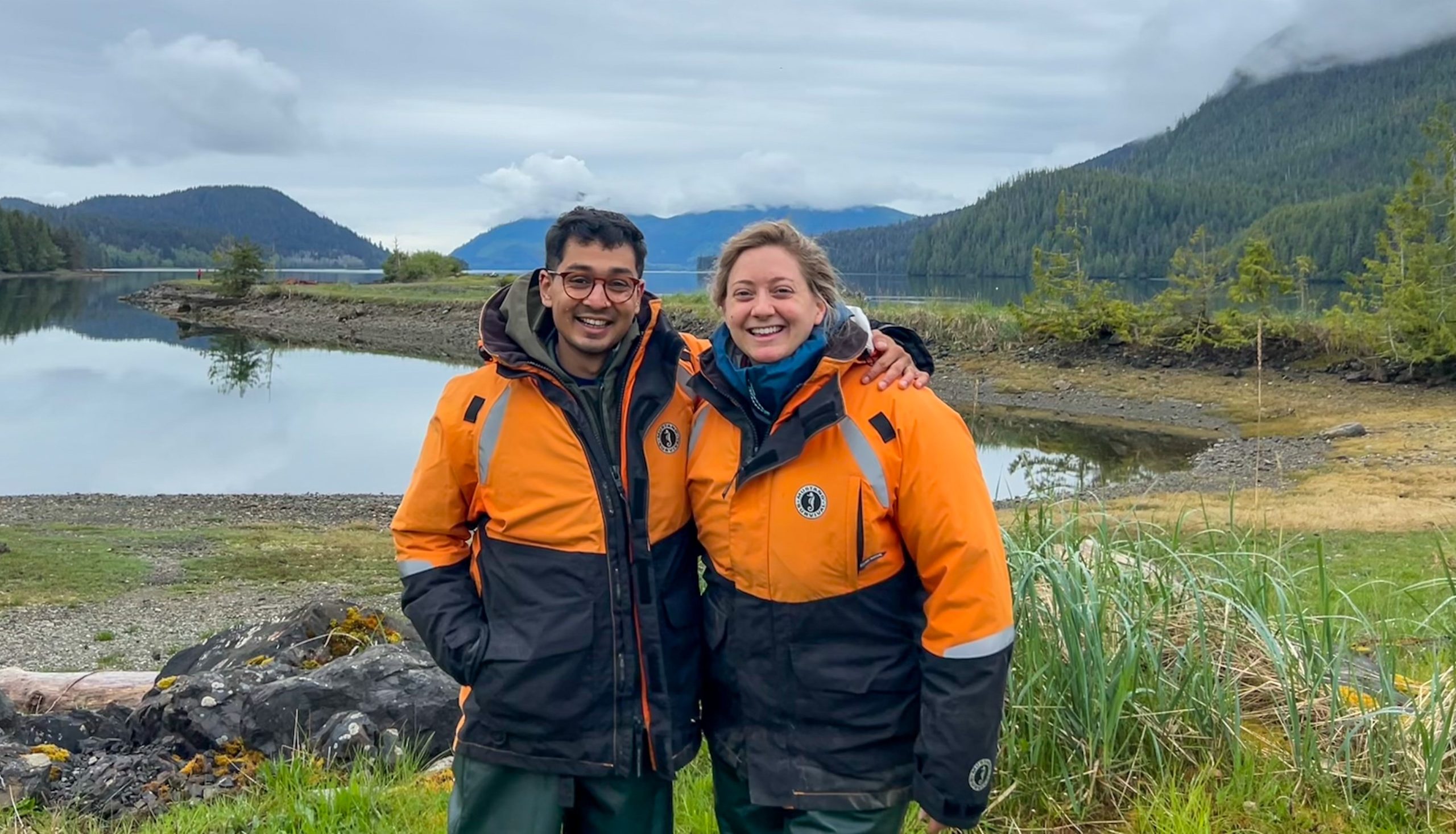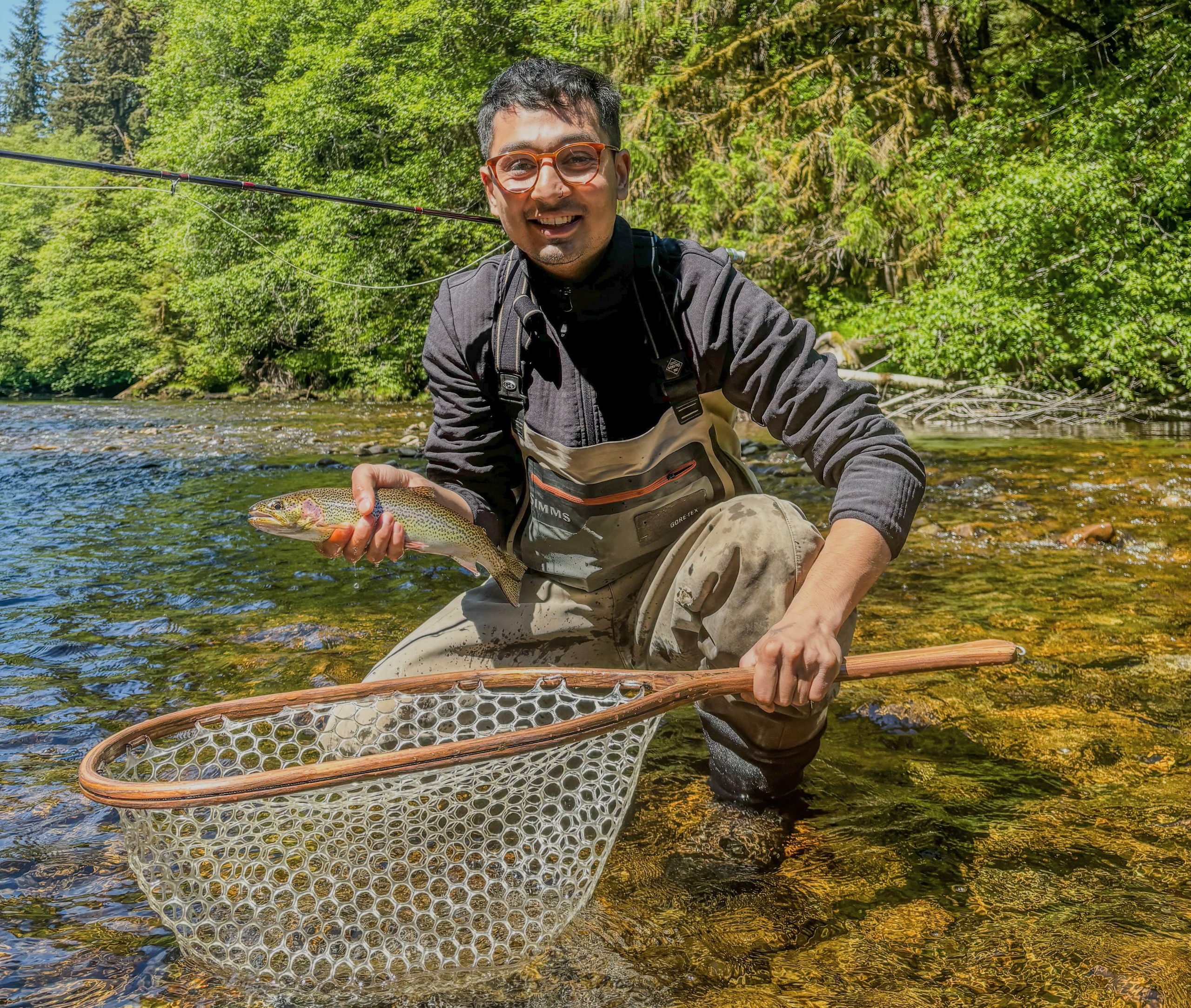
Nomawn in front of Haida Gwaii Hospital and Health Centre in Daajing Giids.
For recent UBC Okanagan School of Nursing graduate Nomawn Shahzad, doing a rural and remote practicum in Haida Gwaii turned out to be a life-changing decision.
On the morning walk to his shift at the hospital, Nomawn watches the clouds glide along the shoreline. He passes the wharf where fishers prepare for their day. He hears the ravens and songbirds make their calls and breathes the crisp air, ripe with the smell of sea and cedar. All timeless reminders of the Haida Gwaii People, despite the upheavals of the past two centuries.
Called Daajing Giids, the village only recently restored its ancestral name. From 1891 to 2022 it was known as Queen Charlotte. Such examples of the Haida People’s resiliency are what most stand out for Nomawn.
“The efforts to preserve Haida culture, language, land, and ways of life were present everywhere,” says Nomawn. “I’m grateful to have had the opportunity to learn about them.”
The close-knit, welcoming community was a decisive factor in Nomawn’s choice to do a Rural and Remote Practicum. Haida Gwaii had been recommended to him by some of his peers in the School of Nursing.

Nomawn and fellow nurse, Bronwyn, geared up for a boating adventure with Moresby Explorers.
“I was greeted and welcomed warmly wherever I went, and I quickly felt like I was part of the community,” says Nomawn. “It’s the kind of place where everyone always waves at one another.”
He found the same supportive environment at the Haida Gwaii Hospital and Health Centre. A typical shift might involve providing care to a combination of acute inpatients, long-term care patients, and some Emergency Department patients. He also assisted a public health nurse and community health nurse with a high school vaccine clinic and home health visits. Other days he worked in Emergency for the entirety of his shift.
“The hospital was a supportive, positive learning environment,” says Nomawn. “I found it easy to build relationships with the healthcare team and with patients and their families. I felt like I was blooming there.”
“Compassion and connection were always at the forefront of my interactions. The biggest reward is knowing you made a difference in someone’s life.”
The physicians and nurse preceptor he worked alongside routinely asked him to share his patient assessments and perspectives on triage and treatment options. These collegial conversations helped him consolidate his problem-solving and nursing skills.
When off shift, Nomawn and fellow nurses he befriended hiked, toured the many islands by zodiac, fished and crabbed.
“I really enjoyed learning how to flyfish with my preceptor,” says Nomawn. “That’s a skill unto itself.”

Nomawn bonded with his preceptor flyfishing in the Yakoun River.
When asked what was most rewarding about the rural and remote practicum, Nomawn is quick to answer.
“Compassion and connection were always at the forefront of my interactions,” says Nomawn. “The biggest reward is knowing you made a difference in someone’s life.”
The health care team obviously took notice of Nomawn’s commitment to care. They offered him a full time position at the hospital, which he has gratefully accepted and will start in September 2024.
For Nomawn, what once seemed far and away has become home.
Comments are closed, but trackbacks and pingbacks are open.